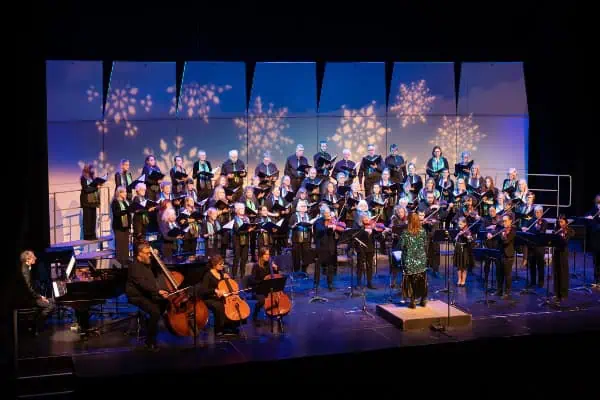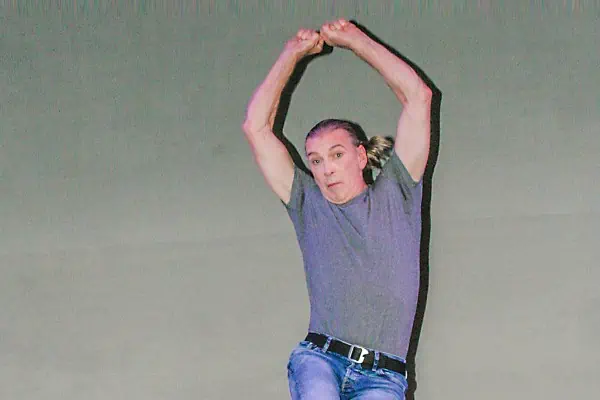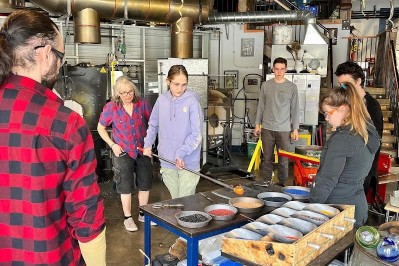The Rotary Music Festival – which gets off the ground again next Thursday – has been a masterpiece of logistics since its beginning in 1969.
It now involves somewhere in the neighbourhood of 2,000 people: organizers, adjudicators, music teachers and, of course, the talented singers and players who will put their best work on display for their families, friends and total strangers.
With two venues, the Yukon Arts Centre and Riverdale Baptist Church, and a schedule that runs with military precision, it is the most intense musical experience on the city’s annual calendar.
It’s much more than that, of course.
For the participants, their teachers and their supporters, it represents the culmination of months of preparation. It also represents hope, sometimes fear, and the joy of self-expression through music.
It has been many, many years since I last put my piping soprano on the line at a music festival. In that part of the world it was, and still is, the Kiwanis Music Festival, but the experience was the same.
Before someone rushes in to correct me, I’m well aware that soprano is not the proper term for a pre-pubescent male singer. We were then, as I’m sure boys everywhere still are, proudly and stubbornly known as trebles.
To call a boy a soprano triggered no end of outrage.
But I digress.
Each year, as regularly as the metronome on our family’s upright Heintzman piano, I awaited the music festival with a mixture of excitement and dread.
Excitement, because I truly loved singing. Dread, because of who would be listening.
Oh, it wasn’t the audience I feared. Although I was tiny and rather timid in person, I was never one to be daunted by an audience, whether in church, or school, or just at home practising in front of four talented siblings and a pair of musical parents.
What made the music festival different was that there would be an adjudicator present.
Could there be a scarier word than the one that described the anonymous person who sat in a small circle of light in the back row, scribbling cryptically and seeming to scowl from the start of my performance to its dying note?
Surely this godlike creature would see right through me, and know exactly how often I had neglected to practise altogether, or had done so with only grudging attention.
Somewhere in the family archives, there exists a scratchy recording of my last festival appearance as a treble.
Forever preserved in its 78-rpm grooves are the couple of times I went a quarter-tone sharp during my rendition of the traditional French carol, “Whence is That Goodly Fragrance Flowing?”
Also there for posterity is the moment I forgot the words to the second verse of “The Skye Boat Song”. The moment my heart and my world stood still, while my mind raced through scenarios of failure and humiliation.
My late brother, then 16 and already a brilliant accompanist, merely stopped and waited for me to gather my wits.
The dreaded adjudicator, whom I remember mostly for magnificent eyebrows the size of a Fuller hairbrush, raised his hand in a signal for me to wait, before quietly and simply saying, “Again, please.”
In memory that pause lasted for eternity. The record shows it as a mere few seconds.
Astonishingly, the adjudicator proved most forgiving, with the result that I earned a small scholarship for voice lessons with a strict and humourless Ursuline nun who didn’t seem to care, or understand, when my voice suddenly started jumping between octaves at will.
It was only a matter of months before treble turned to tenor, then baritone and finally a growly old bass.
I have since learned that music festival adjudicators are not at all the fearsome, godlike creatures I once thought.
This was confirmed again last week, when I had a brief telephone chat with Marla Winters, a Suzuki-method teacher from Manitoba who will be here next week to judge string categories in the Rotary Festival.
No doubt she will be thoroughly professional, filled with careful observations that she will present in a kind, thoughtful and supportive way to players at all ages and levels of proficiency.
I haven’t met, or spoken with any of the other five adjudicators, but I suspect that each of them is also a caring person who does this work less for the money than for the opportunity to help young performers at a critical point on their musical journey.
All this is a fairly long-winded way of acknowledging all those who will be singing or playing at next week’s festival.
Don’t worry if your nerves are acting up a bit. As Marla Winters reminded me, that’s a healthy sign that you care enough to try your best.
And don’t be overly concerned that the audience may include your teacher, parents, other competitors, even complete strangers.
And for heaven’s sake, don’t pay a second thought to that one they call the adjudicator – at least not until it’s time to hear the helpful advice he or she will share with you after you perform.
Just get up and play or sing your heart out, for the sheer joy of making the best musical sound you can.
You’ll never forget the experience, I promise. Almost 60 years later, my music festival days are among my fondest memories.




